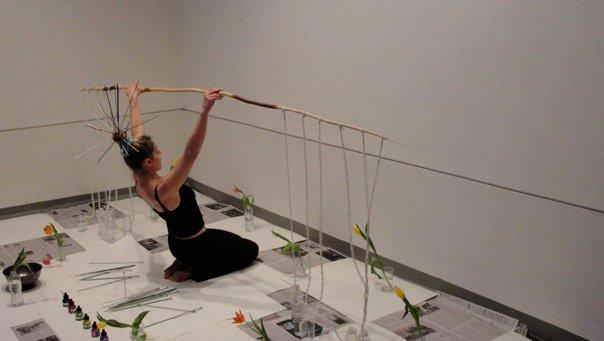In the bustling world of the 21st century, where digital notifications punctuate our days and multitasking has become a modern art form, the ancient practice of mindfulness has emerged as a sanctuary of serenity. Promising a refuge from the chaos, mindfulness is hailed for its ability to enhance focus, reduce stress, and cultivate a profound sense of well-being. Yet, as more people turn inward to explore the depths of their consciousness, a curious question arises: Could this inward journey inadvertently lead to a more self-centered existence? This article delves into the paradoxical realm where mindfulness and self-centeredness intersect, exploring whether the path to inner peace might also lead to a heightened focus on the self. Through examining contemporary research and philosophical perspectives, we aim to uncover the nuanced relationship between mindfulness and self-perception, inviting readers to reflect on the true impact of this popular practice on our social selves.
Exploring the Dual Nature of Mindfulness Practices
Mindfulness, a practice rooted in ancient traditions, is often hailed for its ability to cultivate awareness and presence. Yet, it also carries a paradoxical potential to heighten self-focus. When individuals engage deeply with mindfulness, they may become more attuned to their internal states, which can sometimes lead to an increased preoccupation with personal experiences. This self-reflective nature, while beneficial for self-awareness, might inadvertently foster a more self-centered outlook.
- Heightened Self-Awareness: Regular mindfulness practice can amplify one’s awareness of personal thoughts and feelings, potentially shifting focus inward.
- Balance Between Self and Others: While mindfulness emphasizes self-awareness, it is crucial to maintain a balance, ensuring empathy and connection with others are not overshadowed.
- Individual vs. Collective Experience: Practitioners are encouraged to explore how mindfulness can enhance both personal growth and social harmony.

Balancing Inner Peace with External Awareness
While mindfulness often promises a journey towards tranquility and self-awareness, it can sometimes inadvertently steer individuals towards a heightened focus on their own needs and desires. This inward journey, when not balanced with an outward gaze, might cultivate a sense of self-centeredness. To harmonize inner peace with external awareness, consider these elements:
- Empathy Expansion: Use mindfulness practices to enhance empathy by consciously tuning into the emotions and experiences of others.
- Community Engagement: Incorporate mindfulness in group activities, fostering a collective sense of presence and shared experiences.
- Nature Connection: Extend mindfulness exercises to the natural world, acknowledging and appreciating the environment around you.
By weaving these practices into daily life, mindfulness can become a tool not just for personal serenity but also for enriching our interactions with the world. This balance ensures that the quest for inner peace does not eclipse the importance of external awareness.

Mindfulness Techniques to Cultivate Empathy
Exploring mindfulness offers a gateway to understanding and connecting with others on a deeper level. This practice isn’t merely about introspection; it’s about fostering a genuine awareness of the world around us. Empathy, an integral part of human connection, can be nurtured through specific mindfulness techniques. By focusing on these approaches, individuals can bridge the gap between self-awareness and the awareness of others’ emotions and perspectives.
Consider incorporating the following techniques into your mindfulness routine to enhance empathy:
- Compassionate Listening: Engage in conversations with the intent to truly hear and understand, without the urge to respond immediately. This practice allows for a deeper appreciation of others’ experiences and emotions.
- Loving-Kindness Meditation: Dedicate time to silently send thoughts of goodwill and compassion towards others, including those with whom you may have conflicts. This can open your heart and mind to the experiences of others.
- Perspective-Taking Exercises: Regularly challenge yourself to see situations from another person’s viewpoint. This can break down barriers of misunderstanding and build a more empathetic approach to interactions.
By embedding these practices into daily life, mindfulness becomes a powerful tool to cultivate a more empathetic and connected existence, shifting the focus from the self to the broader human experience.

Guidelines for Integrating Mindfulness with Altruism
To harmonize the practice of mindfulness with altruistic behavior, one can adopt several thoughtful strategies. These strategies not only cultivate personal well-being but also extend a compassionate hand towards others. Mindfulness, when practiced with intention, can foster a deeper connection to the world around us, encouraging acts of kindness and selflessness.
- Set Intentions: Begin your mindfulness sessions by setting an intention to be more compassionate and aware of others’ needs.
- Reflect on Interconnectedness: Use mindfulness to reflect on how your actions impact others, fostering a sense of shared humanity.
- Practice Empathy: During meditation, focus on understanding and sharing the feelings of others, enhancing your empathetic response.
- Mindful Volunteering: Engage in volunteer activities mindfully, being fully present and attentive to those you are helping.
Integrating these elements into your mindfulness practice can help balance personal growth with community-oriented values, ensuring that mindfulness does not become an insular or self-centered endeavor.
Wrapping Up
As we traverse the winding paths of mindfulness and its myriad impacts, the question of whether it nudges us toward self-centeredness remains an open-ended dialogue. While some may find in mindfulness a mirror reflecting deeper self-awareness and empathy, others may perceive a shadow of heightened self-focus. The journey, it seems, is as individual as the practitioners themselves, shaped by personal intentions and societal contexts. As we continue to explore this intricate tapestry, perhaps the answer lies not in a definitive conclusion, but in the ongoing conversation—a gentle reminder of the delicate balance between self-discovery and the world that surrounds us. mindfulness, like life, is an ever-evolving narrative, inviting us to listen, learn, and grow.
